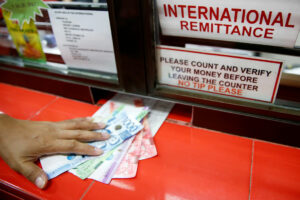
Need for cybersecurity experts grows as PH goes more digital, says DICT

As major infrastructure projects continue to digitally connect the country’s islands, there is a growing need for more cybersecurity professionals amid rising external threats, according to the Department of Information and Communications Technology.
“Cybersecurity is not just an internal matter now. More importantly, yung hinaharap natin na mga gusot sa labas ng Pilipinas [the challenges we’re facing from outside the Philippines] — we need a lot of cybersecurity professionals that can defend the cybersecurity borders of the Philippines,” DICT Secretary Henry Rhoel R. Aguda said during the inaugural membership meeting of the Cybersecurity Council of the Philippines (CSCP) on Friday.
Since taking office in March, Mr. Aguda said about 60% of the agency’s focus has been on cybersecurity, particularly in the wake of the recent May midterm polls.
“Cyberwarfare is the new beachhead. We cannot underestimate the impact of hacking on our critical systems,” he said.
In April, the National Intelligence Coordinating Agency (NICA) said during a Senate hearing that it had uncovered 234 data breaches in “high-level” government agencies so far in 2025.
Cyber-related crimes in the country surged threefold in 2024, with reported complaints rising to 10,004 from 3,317 in the previous year. The escalating trend has resulted in total financial losses amounting to P198 million, highlighting growing concerns over cybersecurity threats.
In line with DICT’s push for digital resilience, several industry leaders, government offices, and advocates came together to formalize the CSCP.
Dr. Donald Patrick Lim, Chairman and President of the CSCP, said the newly formed organization stands out from other tech-driven cybersecurity groups by bringing together business leaders who can drive significant change.
“Our vision is a resilient and cyber-secure Philippines, where businesses, government, and individuals are safeguarded against cyber threats—fostering trust in the digital economy and ensuring a safer cyberspace for all,” Mr. Lim said during the event.
He added that CSCP’s objective is also to promote cybersecurity awareness and foster public-private collaboration for digital resilience.
Expanding Digital Connectivity and Cybersecurity
The DICT, in collaboration with telecommunications companies and key industry stakeholders, has set a goal to triple the number of cell sites nationwide, increasing the current count of 30,000, according to Mr. Aguda.
Alongside this infrastructure expansion, cybersecurity initiatives are being prioritized to strengthen the country’s digital defenses.
Efforts are also underway to enhance the accessibility and affordability of U.S.-based satellite internet provider Starlink, which could position the Philippines as its second-largest market. – Edg Adrian A. Eva



